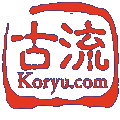I have been a United States Marine for my entire adult life. Both as an enlisted man and now as an officer of Marines, my primary goal has been to be ready to go into harm’s way. The physical and mental mindset that galvanizes this calling lies within the tenets of the koryu bujutsu. As a young Marine, I read the legendary Donn F. Draeger’s books dealing with the classical bujutsu and dreamt of flashing naginata and deep secrets obtained from mystic masters. Concurrently, I read the fabled history of the Marine Corps and envisioned myself on Technicolor battlefields leading Marines to victory. I sought to draw some kind of parallel between the weapons of the koryu that I longed to train with and the M16 rifle and K Bar fighting knife that constitute the tools of my daily trade.
Now–some twenty years later, I have been in harm’s way using those tools as well as conducted koryu training, and the parallel is clear. There is no magic secret or dramatic field of glory. There is hard work, commitment, focused application, and a fusion of the mental and physical that creates an ethos–the ethos of the warrior.
Within these pages, Diane Skoss–herself a longtime exponent of the koryu bujutsu–has brought together the thoughts, musings, and expertise of many of today’s foremost practitioners of this long standing but heretofore little chronicled calling. I am asked by many why–after many years of judo, jujutsu, and other military systems of close combat–I chose to “start over”, that is, turn in my “black belts” and begin this journey. My answer is simple: the koryu bujutsu is the closest mind and body application outside of actual combat.
I am confident that any reader will find much within this volume to challenge his or her preconceived notions or martial makeup. And while Diane has clearly taken a quantum leap with this effort, I hope that she will allow me to close by saying that a book is only the first step. For those who peruse these pages, find a koryu teacher, grasp a weapon, and train. You will fell something altogether different when the tip of a jo lies two inches from the bridge of your nose or a yari thrust that you initiate is parried and your opponent’s thrust hits home. And when you do, you will find that weapon type, uniform patches, and your gradings in other martial arts fade away.
No, you will be left to deal with the feeling that each warrior who has gone into combat has faced: am I good enough today, this minute, right now? And if you find yourself lacking–and many times this will be the case–you will train harder, looking for answers not in a better weapon or a mystic adage, but within the inner reaches of yourself. For in the core of combatives, it is not the weapon, it is the warrior who wields it; it is not the magic, it is the mindset.
You will walk away changed, of this I have no doubt. And change is the paradigm that makes the koryu what it is. The weapons and kata do not change–the exponent does. In a world of speed, crisis, and “fad” of the day, this point of reference is needed now more than ever. For conflicts will occur, and warriors will engage. In the final analysis, mindset–and the training that fosters it–will prevail.
And mindset–the combat mindset–is the heart of the koryu.
Semper Fidelis.
Major George H. Bristol
United States Marine Corps
Copyright ©1997 Koryu Books. All rights reserved.
This article first appeared in Koryu Bujutsu: Classical Warrior Traditions of Japan, 1997.
